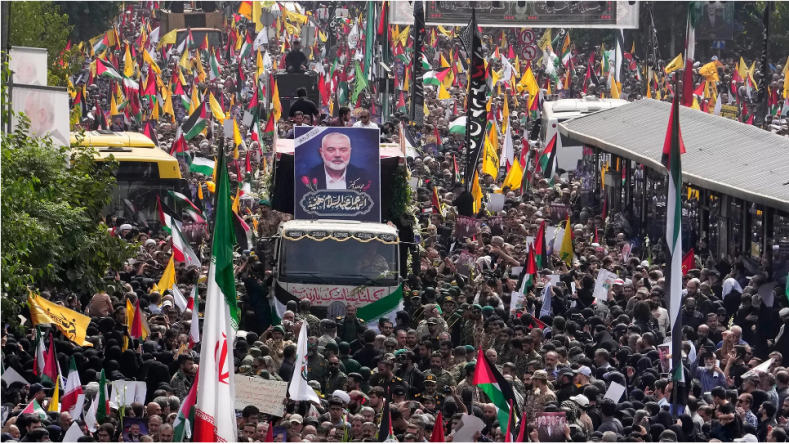
Israel official says Iran war 'inevitable'
An Israeli diplomat has told Newsweek that a large-scale confrontation with Iran was guaranteed to come and called on U.S. President Joe Biden to take direct action against the Islamic Republic sooner than later.
"It's inevitable," Fleur Hassan-Nahoum, a special envoy of the Israeli Foreign Ministry, told Newsweek in reference to the looming possibility of a war with Iran as regional tensions threatened to boil over into a serious escalation.
The ominous prediction comes as Iran threatens to exact vengeance against Israel over the unclaimed killing of Hamas Political Bureau chief Ismail Haniyeh two weeks ago in Tehran. The United States has since scrambled to avoid a major retaliation by pushing both Israeli Prime Minister Benjamin Netanyahu and Haniyeh's successor, Yahya Sinwar, toward a ceasefire to their raging war in Gaza.
With a new round of long-deadlocked talks beginning Thursday, Hassan-Nahoum, former deputy mayor of the disputed holy city of Jerusalem that sits at the center of the decadeslong Israeli-Palestinian conflict now in the throes of its deadliest crisis, said that Iran's rhetoric has created a "very heavy atmosphere in Israel."
The anxiety has gotten to the point that she believes Iran and its allies "are winning the psychological warfare."
It's not just Israel, however. She said the specter of a major Iranian strike appears to be haunting much of the region, including Arab states that Hassan-Nahoum asserted are increasingly on board with a plan to take down the Islamic Republic, even if Israel's ally, the U.S., was not.
"I don't think America has understood that the ultimate goal here has to be regime change in Iran," Hassan-Nahoum said.
It's a war that Hassan-Nahoum said the U.S. could win "in half a day."
"All America would have to do is target the nuclear infrastructure with hardware that only America has. We can't do this on our own," she said. "With bunker bombs, etc., they could destroy the nuclear infrastructure, then they could destroy four different infrastructure and energy points in Iran, and then the people would take over."